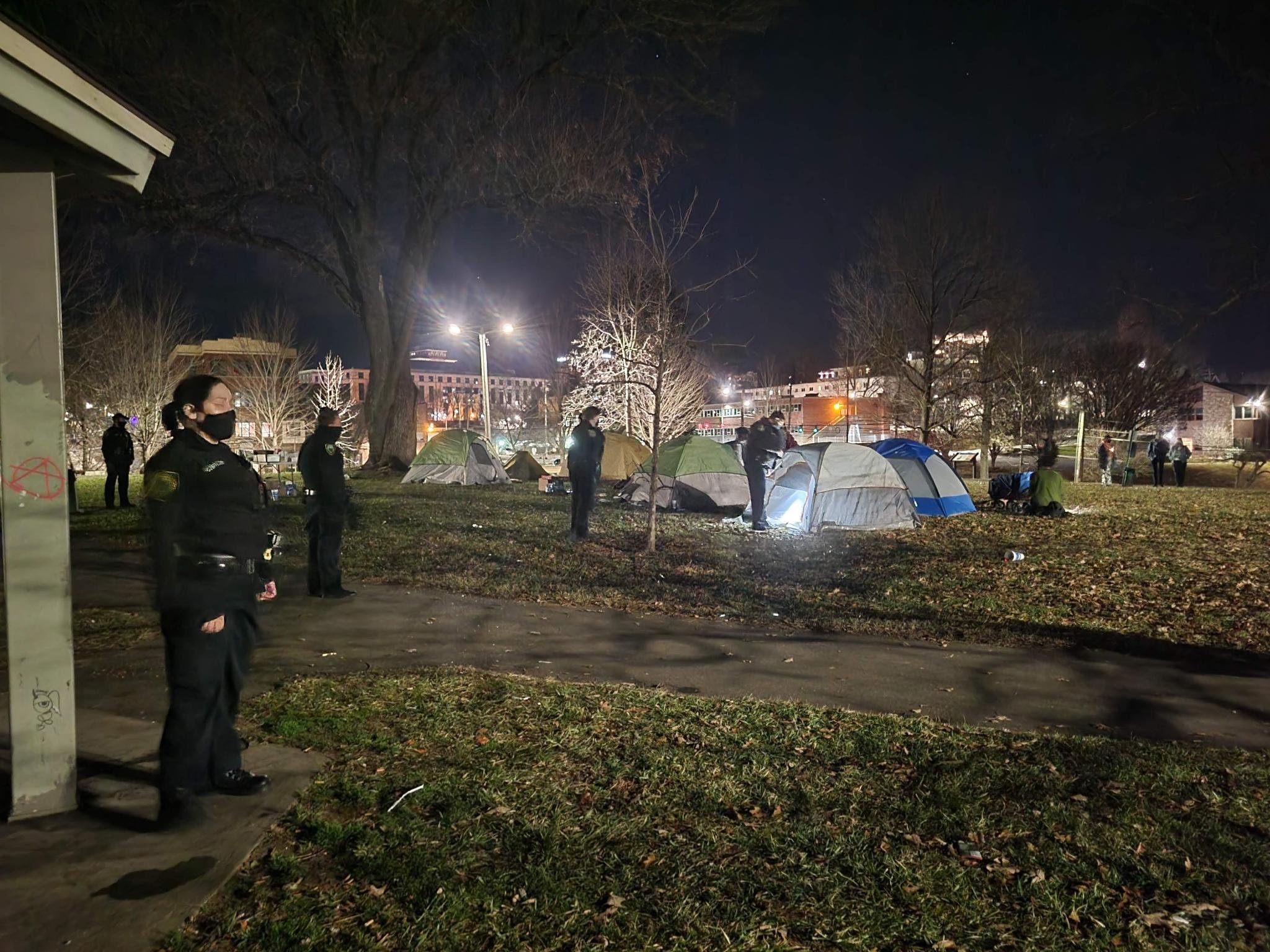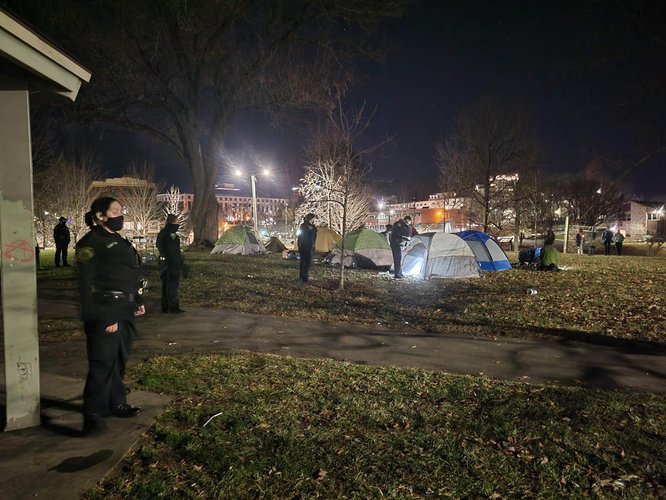
Update: Bliss and Coit's trial has been postponed until April 19, 2023.
Two Asheville Blade reporters arrested last year for reporting on a police eviction of a homeless encampment are set to go to trial on Monday, according to court records and the journalists' lawyer.
The North Carolina reporters, Veronica Coit and Matilda Bliss, were charged with trespassing, apparently for taking pictures of the eviction after police instructed a crowd to disperse. They identified themselves as reporters but police arrested them and seized Bliss’ phone anyway. The “offense” carries a penalty of up to 20 days in jail and a $200 fine.
Regardless of the outcome, the fact these charges were even filed, let alone brought to trial, is an affront to press freedoms and everyone involved should be ashamed. The First Amendment requires the government to let reporters gather news firsthand — not rely on self-serving spin from official sources. Courts tolerate restrictions on reporters’ access to public land only in exceptional circumstances, like serious public safety risks, and even then restrictions must be narrow enough to avoid unduly interfering with newsgathering.
Prosecutors dropped similar charges against Oregon journalist April Ehrlich in September, presumably after having realized the unconstitutionality of their case. The Asheville prosecution is even worse — police did not even bother to set up an already unconstitutional media “staging area” to allow reporters to watch from the cheap seats.
First Amendment freedoms are especially crucial when the press documents interactions between society’s most powerful figures (police officers) and its least powerful (unhoused individuals) but the Asheville Police Department apparently believes it can operate outside the view of the citizens it purports to protect.
Journalists should be commended, not prosecuted, when they document police actions, whether the police like it or not. As one appellate court explained, a police officer “is not a law unto himself; he cannot give an order that has no colorable legal basis and then arrest a person who defies it.”
Unfortunately, Bliss and Coit’s situation is not unusual. Their bench trial follows last year’s acquittal of Des Moines Register reporter Andrea Sahouri, who was arrested and charged with misdemeanors while covering a Black Lives Matter protest. Sahouri, whose case received a wave of national attention, courageously refused a plea deal, citing her First Amendment right to report. The U.S. Press Freedom Tracker reports 215 arrests of journalists since 2020. Several of those arrested were reporting on similar encampment sweeps.
Attempts to criminalize journalism should serve as a call to action for citizens who value the freedom of the press. Of course, Bliss and Coit should be acquitted but hopefully they and other journalists — with the aid of activists and media lawyers — will also follow Ehrlich’s lead and file suit against police departments that punish them for doing their jobs.
This case has gotten little to no national media attention so far, however, our U.S. Press Freedom Tracker has been following it since the two reporters were arrested. You can read the Tracker's reports about all the details here and here.



